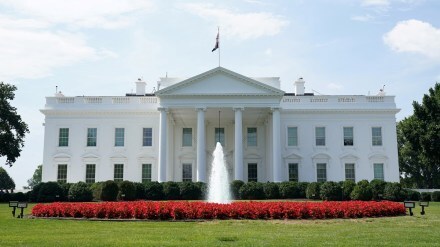– By Monish Tourangbam
The U.S. presidential election of 2024 and the calculated probabilities regarding the impending result on November 5 looms large not only in the United States, but across the world as well. While it is apparent that American voters choose their leaders based primarily on domestic issues, foreign policy does matter even if peripherally. More than any other country’s election, foreign policy counts in the U.S. presidential election, given America’s political, economic and security footprints across the world. Former President Donald J. Trump is clearly leading in the nomination race for the Republican Party, with Nikki Haley being the only contender left but trailing behind significantly. In the Democratic Party, incumbent President Joe Biden is the clear favourite, and he does not have much of a competition. Therefore, in all likelihood, it is going to be a Biden vs Trump rematch at the November polls.
The one question hovering in the minds of policymakers and political leaders across the world must be: What if Trump returns to the White House? The four disruptive years of Trump’s presidency had brought some dramatic changes in how Washington dealt with its allies and partners. Donald Trump, during his presidency, propagating a call to “Make America Great Again” (MAGA), almost made it a mission to shake up the old tunes among America’s allies, often accusing them as free riders on America’s commitments. Therefore, Biden’s presidential term was focussed on rebooting America’s international engagements, and contending to restore America’s global leadership and reliability.
The wars in Ukraine and West Asia will be major foreign policy talking points of the presidential election campaign. The extent of America’s assistance for Ukraine is already facing deep political divide, and as the Biden administration tries to pull together aid packages, Republicans in the U.S. legislature are vehemently opposing it. The Ukraine war has become a highly partisan issue, with opinion polls showing decreasing support for Ukraine among Democrats, and more drastically among Republicans. Commitments to foreign wars are often matters of rifts among America’s political class and the electorate. Unpopular wars in Afghanistan and Iraq were a cause of angst and anxiety among the American people for many years, and American voters will have less appetite for another large-scale involvement in any corner of the world.
Commenting on the Ukraine issue, Trump commented, “We’re giving away so much equipment, we don’t have ammunition for ourselves right now.” In addition, the war between Israel and Hamas, plus America’s military response to armed groups targeting U.S. forces in West Asia have caught front-page attention lately. Call for the use of force, particularly during an election season, throws up major challenges for the incumbent President. On the one hand, President Biden needs to come across as the strong ‘Commander-in-Chief’ who will not take any threat to America’s interest casually. On the other hand, he needs to be mindful of anti-war voices among the American voters that usually become sharper as the election campaign heats up.
China remains an important debating point in the U.S. presidential election. Presidential candidates need to appear strong in response to the strategic challenges posed by an aggressive China on a number of contentious issues that include Taiwan, trade and the geopolitics of technology. While there is a bipartisan consensus that China is the pre-eminent challenger to U.S. primacy, who will be the stronger President to deal with President Xi Jinping will remain the major debating point between the Republican and Democratic candidates.
In India, which will be undergoing its own national election soon, there seems to be less anxiety about the result of the U.S. presidential election. Reflective of the largely stable bilateral relationship, there seems to be a calm confidence that Indo-US partnership will be on the upward trend, no matter who wins the polls in the U.S. While the growing defence partnership between India and the U.S. often makes front-page headlines, the future of India-U.S. economic engagement is a significant pillar of the relationship. While there is an overwhelming positive arc, the huge potential inherent is yet to be realised. Both sides have put in efforts to push the economic engagement in keeping with the current opportunities and risks, and there is an understanding that change of governments will not matter as long the business makes sense, and there is organic synergy in the commercial ecosystem.
Some outstanding disputes between India and the U.S. at the World Trade Organisation (WTO) have been resolved. In the growing economics of emerging technologies, New Delhi and Washington have a strategic convergence to counter China’s assertive and opaque rise. Diversification and resilience of supply chains, and reducing dependence on the Chinese economy, and preventing the latter from using undue leverages is a point of focus. Moreover, sustaining economic growth, while transitioning to a greener economy for mitigating climate change will remain an emphasis area for both sides. The probability of a Trump victory does bring back scenarios of protectionist tendencies in the name of ‘America First’ and trade tariffs’ rhetoric. However, in the final analysis, irrespective of who wins the U.S. presidential election in November, a strong economic engagement will remain crucial for a long-term partnership between India and the United States, and this is a reality well understood in New Delhi as well as Washington.
(Monish Tourangbam is a New Delhi based Strategic Analyst and the Honorary Director of the Kalinga Institute of Indo-Pacific Studies. He is a regular commentator on International Affairs and Indian Foreign Policy.)
(Disclaimer: Views expressed are personal and do not reflect the official position or policy of Financial Express Online. Reproducing this content without permission is prohibited.)
